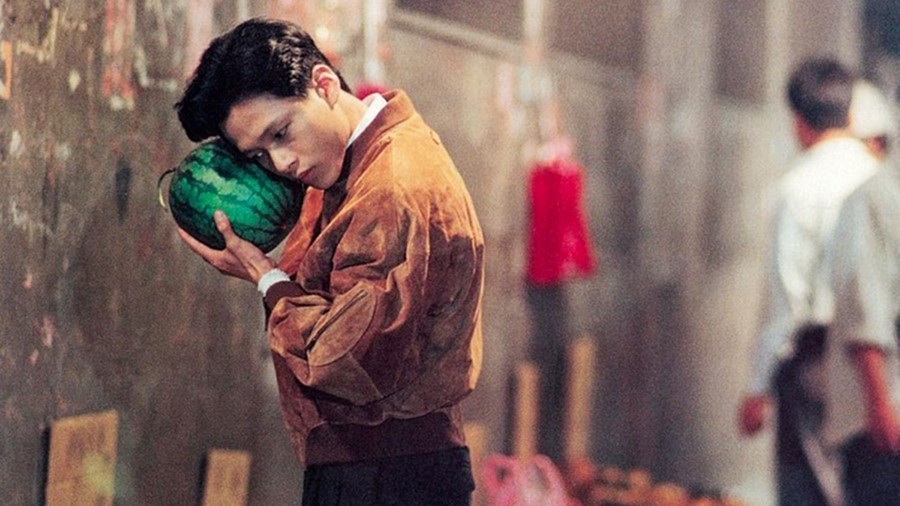As London’s Garden Cinema launches a new season of Taiwanese cinema, James Balmont offers a guide to the best films on show, from works by Edward Yang to Hou Hsiao-hsien
In the late 1970s, Taiwan’s movie market was saturated with romantic comedies, commercial melodramas and uninspiring kung-fu fantasies. What’s more, the most popular films weren’t even native productions – they were imports from Hong Kong. With the Central Motion Picture Corporation desperate to steal back a portion of the market in the 80s, a concerted effort was made to fund new, young filmmakers, who rejected the conventions of commercial cinema in favour of more authentic explorations of Taiwanese life. By 1987, the new auteurs had put their vision to paper – and with the Taiwan Film Manifesto, a new golden age of Taiwanese arthouse filmmaking was confirmed.
Taking inspiration from Italian neo-realism, the filmmakers delivered realistic and sympathetic films that reflected on issues that Taiwanese audiences could relate to: poverty, unemployment, and the effects of societal change on everyday individuals. This was a cinema determined to capture the beauty and the mundanity of life – utilising non-actors, natural lighting, and the country’s stunning scenery, and delivering stories laced with social commentary at a gentle, lifelike pace. As a second wave emerged with new talents like Tsai Ming-liang in the 90s, first-wave figureheads Edward Yang and Hou Hsiao-hsien reached such acclaim that they would become mainstays at the world’s most renowned film events: between 1993 and 2000 alone the trio would receive an incredible seven Cannes Palme d’Or nominations between them.
In the decades since these films have only become more revered – with five core texts included in Sight & Sound’s once-a-decade poll of the greatest films of all time in 2022. Now, in 2023, masterpieces from the movement spanning the 80s, 90s and 00s will screen collectively for the first time in the UK, as London’s The Garden Cinema unveil a groundbreaking programme of New Taiwanese Cinema in September and October.
Read on to discover why it’s an event not to be missed, via AnOther’s highlights of the Taiwanese New Wave:
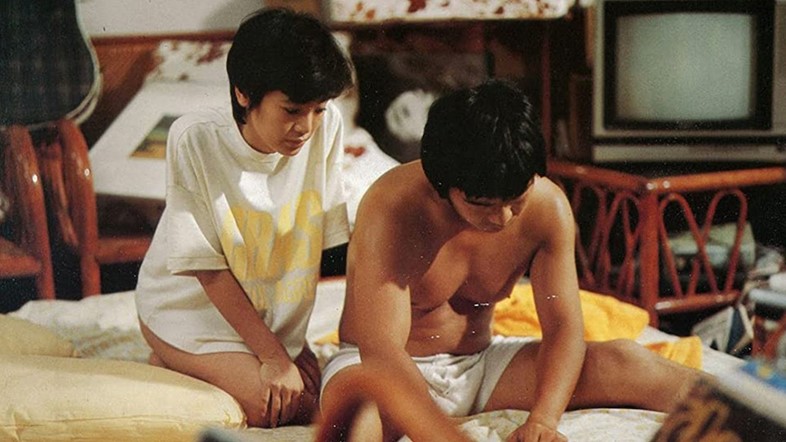
In Our Time (Tao Te-chen, Edward Yang, Ko I-chen, Yi Chang, 1982)
Screenings: 7 and 10 September at The Garden Cinema, London.
A foundational text of the New Taiwanese Cinema movement, In Our Time was the product of a new initiative between Taiwan’s Central Motion Picture Corporation and a wave of unknown directors – including future Cannes Best Director winner Edward Yang. The four rich short stories that make up the anthology make for transcendent viewing, following a series of characters as they come of age over concurrent decades between 1950 and 1980.
Each vignette excels thanks to deliberate pacing, intimate camerawork and documentary-style realism – a stark contrast to the commercial works found elsewhere in Taiwan at the time. Instead of high fantasy wuxia movies set in ancient China, for example, Yi Chang’s Say Your Name (about a man who gets locked out of his cluttered apartment wearing only a towel) showcases wide shots of a dozen lanes of gridlocked traffic in 80s Taipei – a striking sign of the changing times.
Elsewhere, two more melancholy contributions serve as an ideal introduction to the masterworks to come later in the New Taiwanese Cinema movement: Yang’s Expectations follows a schoolgirl as she undergoes her first experiences of womanhood; and Tao Te-chen’s Little Dragon Head tells the story of a neglected, dinosaur-obsessed child who makes a new friend – with Santo & Johnny’s woozy surf classic Sleepwalk evoking a dreamy and wistful atmosphere in the latter.
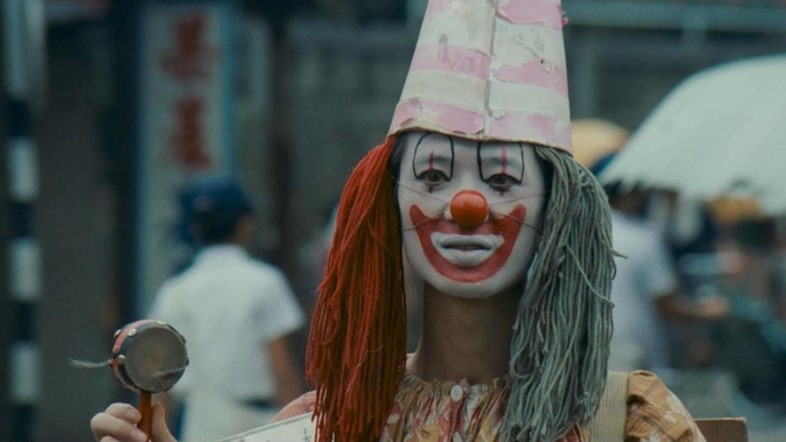
The Sandwich Man (Hou Hsiao-hsien, Wan Jen, Zeng Zhuang Xiang, 1983)
Screenings: 28 September and 9 October at The Garden Cinema, London.
Another rarely-screened anthology movie no less essential to the genesis of the Taiwanese New Wave is The Sandwich Man, in which three stories from a Huang Chun-ming short story collection are adapted by three different directors.
Each entry takes place in a different year in the 1960s – a time during which the country was undergoing major industrialisation at the height of the Cold War. This backdrop is crucial given the narratives explored: Vick’s Hat (Wan Jen) highlights the dangers of rapid modernisation by focusing on the salesman of a new kind of pressure cooker, whose overzealousness leads to disaster. The Taste of Apples (Zeng Zhuang Xiang), meanwhile, forefronts the poverty gap by exploring the fall-out of a traffic accident involving a poor Taiwanese labourer and a US army serviceman.
The brilliant opening vignette, though, is by far the most poignant – an early career highlight for world-renowned auteur Hou Hsiao-hsien. It follows a scrawny young man (Chen Bozheng) who wanders the streets in colourful rags, rattling a tiny drum to advertise a local business. Chastised by his neighbours, and earning only a pittance for his labour, the clown persists even when new opportunities arise – because without his make-up, his newborn child no longer recognises him.
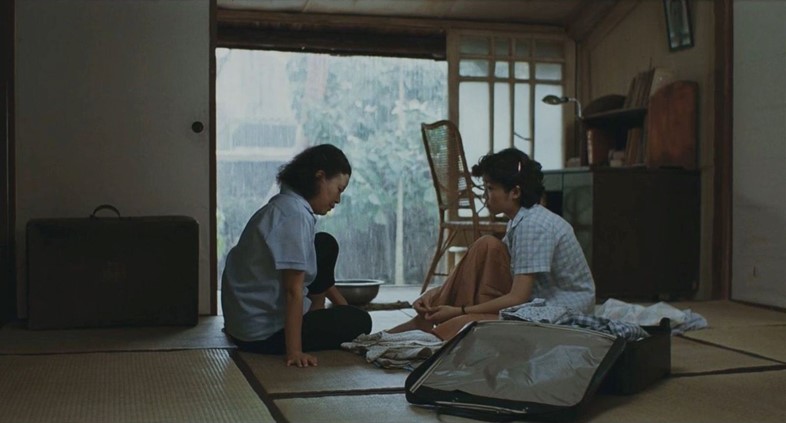
A Time to Live, A Time to Die (Hou Hsiao-hsien, 1985)
Screenings: 12, 14 and 23 October at The Garden Cinema, London.
Utilising the director’s own voice as narrator, and revisiting events from his childhood in Kaohsiung city in the 50s and 60s, A Time to Live, a Time to Die tells the story of Ah-ha (Yu An-Shun, Daughter of the Nile) – a mischievous boy raised in a quiet village under a sheet metal roof, who comes of age following the devastating death of his father.
In this contemplative feature – often reminiscent of the works of Yasujiro Ozu thanks to numerous, pristine interior shots of an empty rural home – the sounds of cicadas and stray dogs barking serve as backdrop as a family huddles to eat bowls of rice in the dark. Quiet moments like these linger as children play marbles in the street, palms sway in the wind, and steam trains pass street hawkers in town – with the images elevated by the work of cinematographer Mark Lee Ping-bing (In the Mood for Love), in what would be the first of many collaborations between the pair.
Add in a stunning utilisation of natural light, and classical piano music to guide the emotional journey over time – plus some utterly naturalistic performances from its cast – and you’ve got an early masterpiece from one of the foremost arthouse filmmakers in the world. Fittingly, it would mark Hou’s breakthrough at Europe’s top film festivals – winning him the FIPRESCI Prize at Berlin in 1986 ahead of bigger wins at Venice and Cannes in the years to come.
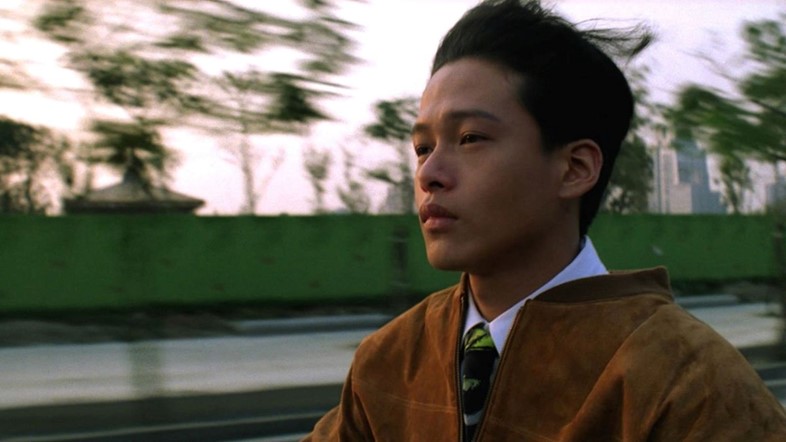
Vive L’Amour (Tsai Ming-liang, 1994)
Screenings: 5, 8 and 16 October at The Garden Cinema, London.
After debut feature Rebels of the Neon God (also screening at The Garden Cinema) delivered youthful exuberance and queer desire in hectic, colour-saturated Taipei in 1992, Tsai Ming-liang reunited with his acting muse Lee Kang-sheng for a project that would take the ‘Second New Wave’ to lofty heights in 1994. The winner of the Venice Golden Lion that year – as decided by a jury headed by David Lynch – Vive L’Amour would develop the director’s famously austere filmmaking style and secure a global arthouse breakthrough in the process.
Featuring less than a hundred lines of dialogue – instead emphasising noisy traffic intersections, clacking high-heels, bleeping tills and laboured breathing – Vive L’Amour is the minimalistic tale of an attractive real estate agent (Yang Kuei-mei), a depressed young ossuary salesman (Lee), and a handsome rogue (Chen Chao-jung) who unknowingly all share the same apartment. Over countless unbroken long takes that chew on bright blue telephone boxes and neon-lit night markets, these alienated subjects will cross paths in increasingly unexpected ways.
The result is an emotionally desolate exploration of urban life that is both beguiling and utterly hypnotic – with a climactic stroll through the vast, mud-blighted Daan Forest Park offering a confounding and powerful catharsis. At the Golden Horse Awards in Taiwan, the film would win Best Picture, Best Director, and Best Sound – leaving fellow nominees like Edward Yang’s A Confucian Confusion and Wong Kar-wai’s Chungking Express in its wake.
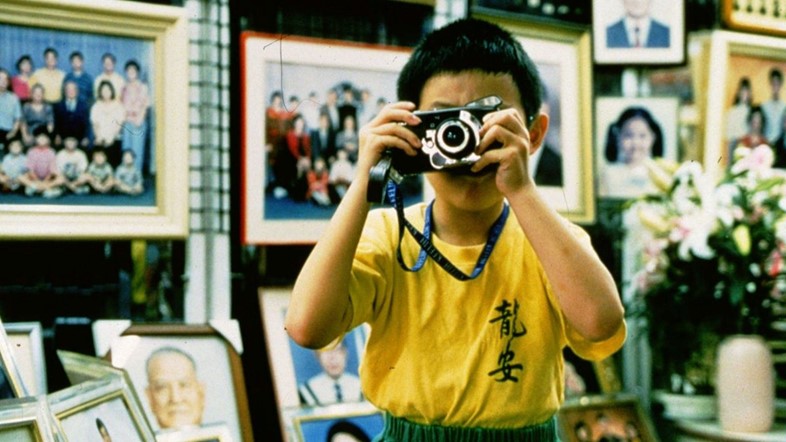
Yi Yi (Edward Yang, 2000)
Screenings: 26 and 27 October and 6 November at The Garden Cinema, London.
A trio of films included in The Garden Cinema’s New Taiwanese Cinema programming have become so revered in recent times that they are now considered among the greatest ever made.
Ranking at number 225 on Sight & Sound’s once-a-decade list (informed by a poll of 1,639 critics in 2022) is the opium-drenched period drama Flowers of Shanghai. Set inside an upper-class prostitution den in 19th century Shanghai, and utilising only 40 shots across the entire feature, this hypnotic, Tony Leung-led drama was a core focus of our Guide to The Films of Hou Hsiao-hsien.
The only Taiwanese New Wave director to rank higher in the poll (Hou’s other inclusion, A City of Sadness, will have a new restoration showcased via the Udine Far East Film Festival in April 2024) is Edward Yang – whose masterworks A Brighter Summer Day and Yi Yi, both explored via our Guide to The Films of Edward Yang, each ranked inside the top 100. The latter – a moving drama that explores multiple generations of the same family, beginning with a wedding and ending with a funeral – would mark the high point of the movement when it won the Best Director prize at Cannes in 2000.
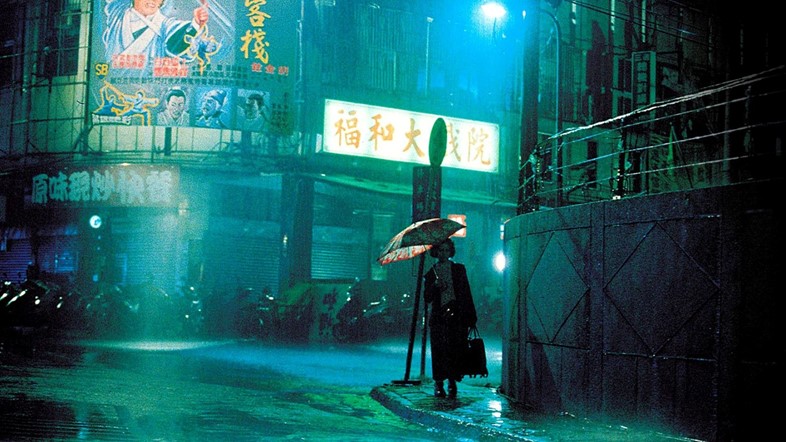
Goodbye, Dragon Inn (Tsai Ming-liang, 2003)
Screening: 4 November at The Garden Cinema, London.
Celebrating its 20th anniversary this year is the final film of the Taiwanese New Wave to make the Sight & Sound list in 2022: Goodbye, Dragon Inn (ranked #108 – just behind The Godfather Part II and Jaws). Arguably the greatest achievement of the slow cinema genre, it observes the patrons of a historic Taipei cinema during the final film screening before its closure – with The Garden Cinema presenting it in a double bill alongside the martial fantasy drama of its focus: Dragon Inn (King Hu, 1967).
The project came to fruition after director Tsai Ming-liang was alerted to the closure of a real local cinema that reminded him of those he’d frequented in his youth; the entire film was shot inside the building prior to its demolition. What he captures is a profound sense of loss – as a film that once broke box office records plays out to a near-empty room, to patrons largely uninterested. With an average shot length of 55 seconds, the result is a deeply meditative reflection on the changing times – roundly connecting the end of the Taiwanese New Wave to one of the films that may have unknowingly kick-started it.
The New Taiwanese Cinema programme is screening at The Garden Cinema in London in September and October 2023.
